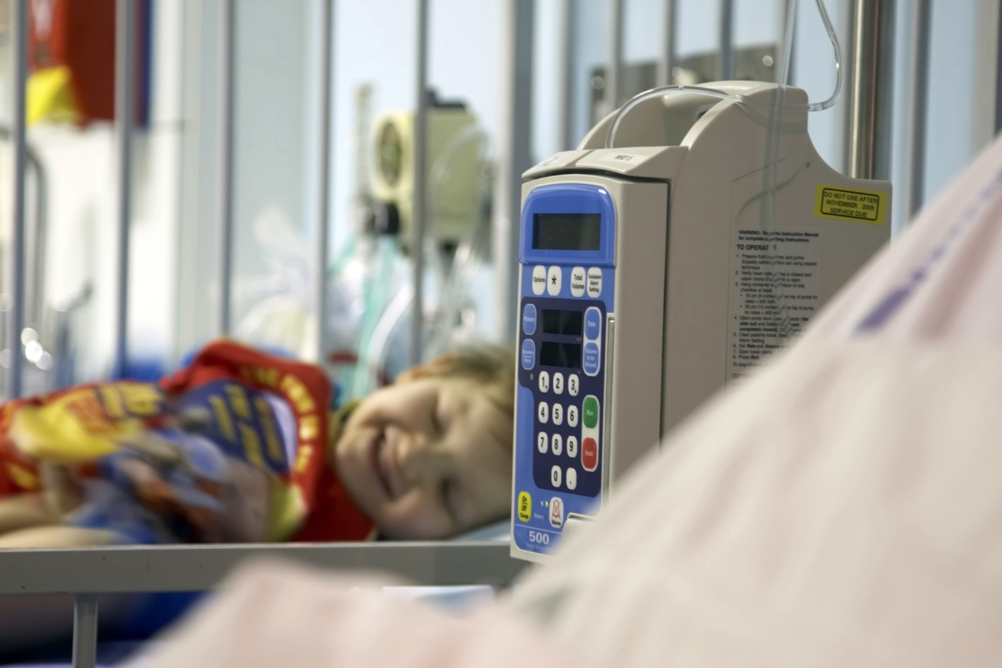
The report of the Children and Young People’s Health Outcomes Forum, published last summer, laid out a vision for how to make every part of the NHS more alert to the needs of young patients.
The government has now launched a national pledge to reduce child deaths and pursue a number of the forum’s recommendations as part of its official response to the report. As a result, all NHS services will be expected to demonstrate that they listen to the views of children and young people.
New outcome measures will track cancer survival rates for children, while all data on child health will be presented in five-year age bands up to the age of 25, to enable transitions between services to be monitored.
A survey on local problems affecting children and young people such as bullying, drugs and alcohol will be piloted. And a Children and Young People’s Health Outcomes Board will bring together leaders in children’s services to champion a strategic focus on improving child health, while the outcomes forum itself will be maintained.
Meanwhile, plans to use a child’s NHS number as a “unique identifier” to track their outcomes in health, education and social care are under consideration, and GP training will be extended to include a fourth year covering issues including paediatrics and mental health.
Hilary Emery, chief executive at the National Children’s Bureau, welcomes the government’s recognition of the value of consulting young patients. But she believes that ministers could have gone further, by emphasising the importance of using children’s views to shape services.
“We need to make much more of why the involvement of children and young people is not just a nice thing to have – it is critical,” she says. “There needs to be a much stronger commitment to acting on children and young people’s views.
“Care works better if young people understand why treatments have to happen and they will undertake and sustain that regime better, and for longer, than they would otherwise have.
“Listening to young people is such a big culture change that it will need a lot of work at a national level through to local commissioning boards to challenge services on how they are doing that.”
Focus on the vulnerable
Emery adds that greater weight should have been placed on the importance of engaging with particularly vulnerable young people, such as those in care or the youth justice system, to find out how the health services they receive can be improved.
“While there is reference to children with special educational needs in the response, there is no mention of looked-after children or children in custody,” she says.
“They are subjected to disrupted home lives, are extremely at risk and pose a continuing challenge both for policymakers and practitioners. These are the most vulnerable children who are more poorly served in terms of health and education services than those in the mainstream.”
Jo Webber, interim director of policy at the NHS Confederation, says the retention of the outcomes forum alongside the creation of a Children and Young People’s Health Outcome Board, which will be led by the chief medical officer, will be central to ensuring the government’s vision for child health is delivered.
“The fact somebody is looking at children and young people’s health in its entirety is really good news,” she says. “By retaining the forum, you are making sure that what is being suggested in the report and government’s response has been taken on board and is followed through.”
She adds that using children’s NHS numbers as unique identifiers across a range of agencies could radically improve the way young people are dealt with throughout the spectrum of children’s services. “It is really important that you know not only how children interact with health, but how they interact with and benefit from wider children’s services,” she says.
Additional support
“You can then get a feel for the families that need a bit of extra help and put preventative measures in place before they reach a crisis. The NHS number makes the most sense as the way to do that because everyone gets one at birth.”
While the outcomes forum and government response stopped short of advocating the introduction of any specific new initiatives relating to early intervention, Webber says that an emphasis on preventative measures runs through all of the recommendations being taken up by ministers. She argues that this underlying commitment to earlier help must set the tone for local spending decisions.
“The issue is that children’s health is not the huge focus of the health service at the moment because of issues around efficiency savings, and those that use the most resources are the frail and elderly,” she explains.
“People have been concerned that cuts could affect early health and early intervention work, which is so important from a child health point of view.
“The government’s response to the outcomes report is restating and putting an emphasis on the things that are really important and that should be local priorities. It will be helpful as decisions get more difficult, as they will do over the next couple of years.&r
Register Now to Continue Reading
Thank you for visiting Children & Young People Now and making use of our archive of more than 60,000 expert features, topics hubs, case studies and policy updates. Why not register today and enjoy the following great benefits:
What's Included
-
Free access to 4 subscriber-only articles per month
-
Email newsletter providing advice and guidance across the sector
Already have an account? Sign in here

